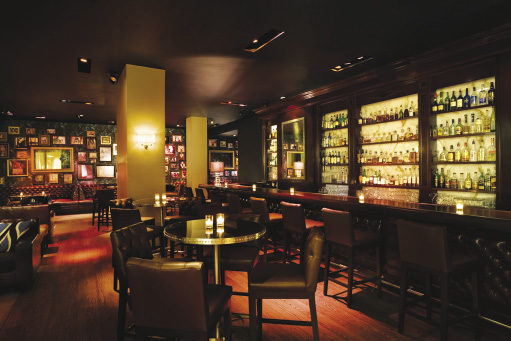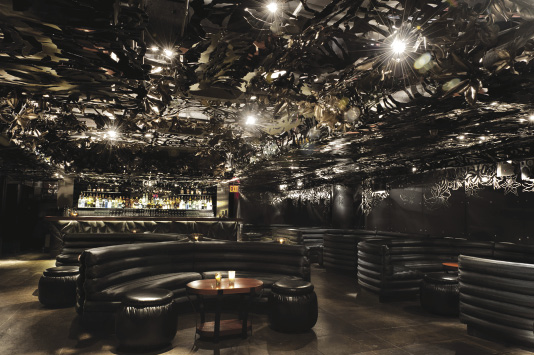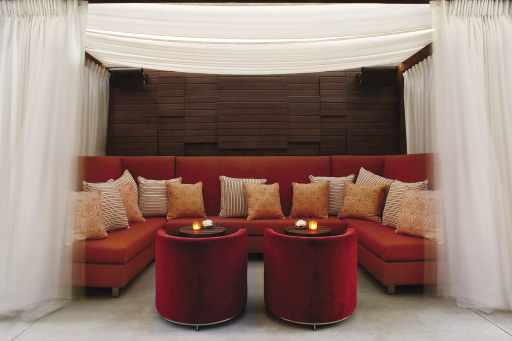![]()
ONLINE
![]()
ONLINE

Embracing People
Editors’ Note
Scott Gerber began his career in the bar business in 1991 as a partner in The Whiskey at the Paramount Hotel, which later became the company’s signature brand. Gerber formed a partnership with Starwood Hotels & Resorts to develop the W brand, which now features Gerber Group venues throughout the U.S. and in select properties internationally. Prior to founding the company, Gerber was a principal at the real estate firm, Peter R. Friedman Ltd. Gerber has been quoted in The Wall Street Journal, USA Today, and Crain’s New York Business, among others. He holds a B.S. in Finance and Real Estate from the University of Arizona.
Company Brief
Gerber Group encompasses 23 iconic venues internationally under such brands as Whiskey Park, Whiskey Blue, Living Room, and Stone Rose Lounge. Rande Gerber founded Gerber Group in 1991, in which his brother Scott Gerber was one of the original investors. Today, Scott Gerber manages the company and its full portfolio of properties. Gerber Group (www.GerberBars.com) is positioned to continue its significant growth in the U.S., Europe, and South America as the preferred partner to Starwood Hotels & Resorts, Host Hotels & Resorts, Accor, W Hotels® Worldwide, Sofitel Luxury Hotels, Strategic Hotels & Resorts, Related Companies, and Noble Investment Group.
What is it that differentiates Gerber Group?
In an industry that can be extremely fickle, we have managed to create longevity over the past 20 years for our brands by rebuffing the tendency to create the new “it” bar. Instead, we concentrate on creating a consistent feel while adapting to local demographics worldwide. We have also built great relationships with our hotel partners. We’ve been involved with Starwood Hotels & Resorts for 12 years. The partnership is widely credited for changing the landscape of the nightlife industry by creating unique, innovative venues that have redefined ‘hotel bar.’ The alliance led to the rapid expansion of the Gerber Bars in W Hotels around the country. It’s not always the easiest business to partner in because there are many risks; however, due to the fact that our bars are so profitable, they’ve become an important part of the hotel business model by helping to increase food and beverage revenue, as well as occupancy rates.

Whiskey Blue, New York
How do you keep your venues relevant?
We do not create trendy bars, but bars that are on trend. Longevity is generated by cultivating a consistent feel through great service, music selection, and overall ambiance. Mostly, we make sure the music is always current and interesting – this does not mean top 40. The executive team relentlessly travels to the top music festivals around the country researching music culture. We try to offer what’s next to keep the customers wanting more with everything from DJ’s to live bands, producing a multilayered performance experience. We also hire great staff and keep them engaged to ensure passion for their work and quality interaction with guests. Our liquor tastes the same as everyone else’s; it’s the staff that keeps customers coming back for a consistently enjoyable experience.
In an industry that typically sees significant staff turnover, how do you find and engage that talent you need?

Lilium interior, New York
We have 700 people who work for us, but we treat them like family – if someone has a problem, we’re compassionate about it. We have had staff with family out of the country and they can’t necessarily go see them, so we’ll pick up the tab to have them fly there. Then they really watch out for you.
We give people opportunities to transfer if we’re opening a new bar – employees are going to Paris to train and we have a place in Santiago, Chile so they can go there as well.
Also, when you have Gerber Group on your resume and you want to move on, it’s a good calling card.
Do you see opportunities for the group internationally?
By happenstance, we recently consulted on a deal with Barry Sternlicht (Founder, Chairman, and CEO of Starwood Capital Group) in Paris, but we’re also looking at Panama City. In addition to recently reopening Lilium, we will be opening more properties in New York, and potentially San Diego, Boston, and Washington, D.C. Both nationally and internationally, the hotels typically approach us and we evaluate each opportunity.

Stone Rose Lounge sitting area, Los Angeles
Is it a challenge to make your venues approachable while retaining their allure?
When we first started in the business, because of our partnership with Ian Schrager, there was that velvet rope culture. Our attitude changed quickly – we embrace people. We want to bring everyone in; we don’t want our places to be intimidating. They can be at times, but hopefully it’s not because of the attitude we’re putting forth.
Do you lean one way or the other on stand-alone properties versus hotels?
We lean towards hotels because we have established great partnerships with them. Hotel customers spend the majority of their time in the places that serve food and drinks; therefore, we are an amenity to the guests. Our business from Sunday through Wednesday – when many bars are closed – is significant because hotel traffic drives a steady stream of customers. We have looked at freestanding deals, but we get along well with our GMs and act as a seamless department of the hotel even though we are a third-party operator.
Was the opening of Lilium successful and what is your outlook for the venue?
Yes, the opening of Lilium has been very successful. We are attracting a younger, hipper clientele, due in large part to the downtown location on Park Avenue South, which draws a more eclectic crowd (artists, musicians, models, etc.). It’s more of a “club” than most of our other properties and features notable and up-and-coming DJ’s throughout the week. While not designed as a dance club, the sexy, dark, brooding vibe of the space keeps people moving. Combined with the renovation of the hotel and restaurant, I’m sure the business will continue to grow.
Where will the business be five years from now?
There will be a lot more venues added to our portfolio in the next five years, and as our brands continue to evolve, we want to make sure each endeavor uniquely represents who we are. We have the ability to open 10 venues a year if they’re scheduled properly. I would like to continue to expand with my current partners; there is a lot of opportunity because they get what we do and continue to leverage our talents and expertise in food and beverage. Ultimately, they let us do what we do best.•